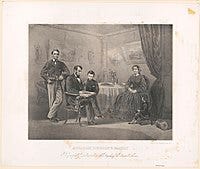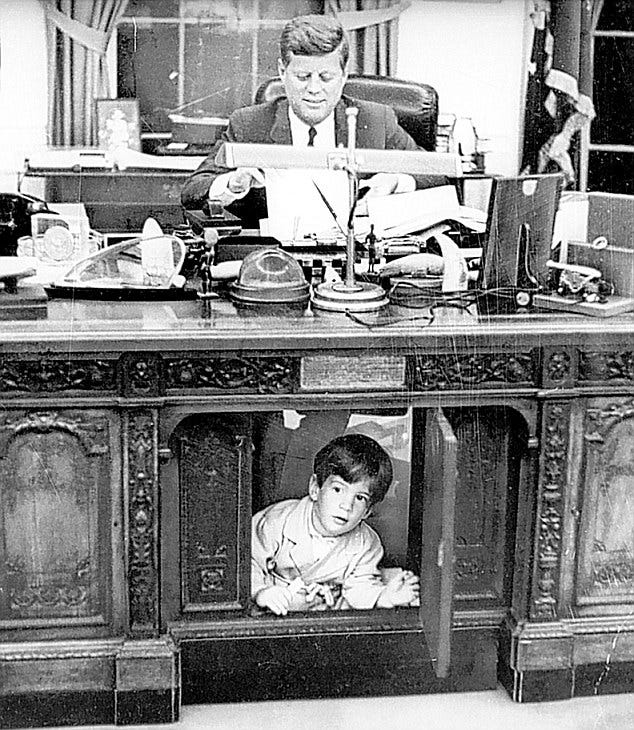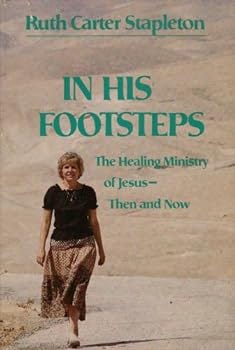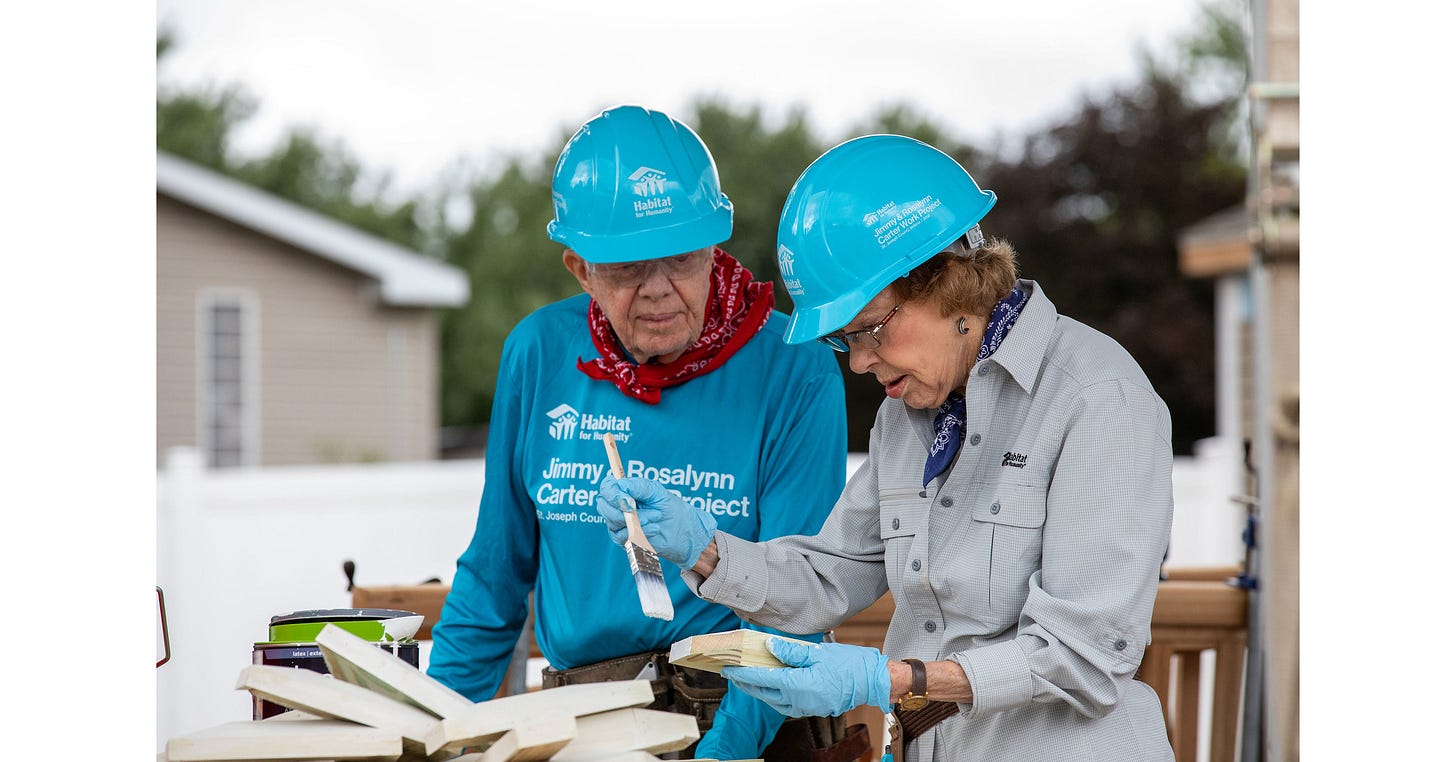A change of pace: Looking back at presidential family members I have met
Part 1: President Carter's sister, Ruth Stapleton
I have always been fascinated by U.S. presidential families, particularly First Ladies and their children. As a historian, I can remember being caught up in both old dramas—from the sad history of Abraham Lincoln’s family, both before and after his death in 1865—and newer ones, like the childish antics of John-John Kennedy underneath his father’s White House desk. He was the first child born to a president or president-elect in the 20th century. I was 11 when John was born, and will never forget his little-boy salute as his father’s coffin passed by just three years later.
Ill-starred family of President Abraham Lincoln, ca. 1862. Courtesy Library of Congress
John-John under his father’s desk, October 1963. Photo by Alan Tretick, credited to Associated Press.
I became a working journalist after college in 1971, and my curiosity about politics and our elected leaders only continued to grow. My historical interests in the lives of presidential extended families had already expanded as I watched the captivating, controversial careers of President Kennedy’s brothers, Bobby and Ted, who both went on to become U.S. senators, and his sisters Eunice Shriver, who founded the Special Olympics when I was still in college, and Jean Smith, who became a U.S. ambassador while I was still a Foreign Service Officer.
I had left active journalism by 1976, when former Georgia governor Jimmy Carter ran for the presidency, and like many Southerners of that era, was delighted when Carter won that race. At that time, I was running my family’s retail office supply business in Fayetteville, North Carolina, and by coincidence, our family’s veterinarian was Dr. Robert Stapleton, who just happened to be married to the President’s younger sister, Ruth Carter Stapleton.
Cover of Ruth Carter Stapleton’s 1979 book. Image courtesy Thriftbooks.com
The Cape Fear Animal Hospital was a large and busy enterprise run by Dr. Stapleton and his partner, Dr. W. O. Slappey. It stood just across Bragg Boulevard from our store, and Bragg Office Supply often delivered office supplies to them. Our small store catered both to walk-in trade and local businesses, and my Daddy had built up a small but faithful clientele before I joined the firm as general manager in 1975, during his extended illness. When he was finally well enough to return, Mother drove him back and forth from our family home in Dunn, 25 miles away—so she spent almost as much time there as I did.
I was the jack-of-all-trades manager, from sweeping the floors every evening to opening the doors every morning, ordering supplies, keeping the books (Mother was the better accountant, by far), and paying taxes to waiting on customers —when I wasn’t really getting my hands dirty with endless chores, like closing up a fading branch store in nearby Spring Lake (the other side of the old Fort Bragg reservation). Barely profitable when Daddy had first acquired it from his new cash register serviceman, it had never truly prospered—more trouble to staff than it was worth, in the end.
So on that appointed day in the hot summer of 1978, I had to rent a truck, load it up with junk—mostly oily, rusty cash registers and the like—that could neither be resold nor tossed into a dumpster, and drive it out to the Cumberland County landfill to dispose of its grimy contents by hand, with no help.
By the time I finished, I was exhausted and covered, head to toe, in greasy dirt. I looked like a homeless derelict, not the reasonably prosperous businessman I pretended to resemble on most days. All I wanted to do was turn in the truck, sneak in the store, wash my hands, and run home to change clothes. My plans quickly went awry when I could not get the back door open and instead, had to enter by the front.
Mother was at the cash register, waiting on a customer. I tried to sneak past her but she chirpily insisted that I come over and meet the very attractive customer in her late 40s, whom I did not recognize, dressed like a fashion model, gloves and all. Ben, I want to introduce you to Mrs. Stapleton, the president’s sister, I heard her say—and horrified, suddenly hoped the earth would just open up beneath my feet and snatch me away first.
Nothing doing. I smiled as much as I could, under the circumstances, and when she extended a gloved hand to shake mine, I threw my hands up and said, alarmed, the first thing that came into my addled brain: “No, please, I’m not clean.”
Imagine my mortification when Ruth Carter Stapleton reached out with one gloved hand on a shoulder of my filthy tee-shirt, smiled and said in an endearingly kind, sincere manner: “Oh but you are.” She had recently gained a mostly-unfair and trivialized reputation, which she openly detested, as a sort of “faith healer”—a trained psychologist with a deep commitment to her Christian faith, I guess her words that day just came naturally to her. I was momentarily stunned. I did not argue with her, just smiled like a caged monkey and made my excuses, exiting stage left.
I should note here that Mrs. Stapleton was in the store purchasing supplies for her personal use as an author—we sold fine, 100-percent vellum typing paper, which she wanted, among other things few regular customers bought, but we were regionally known for routinely stocking items that other stores would likely have to special-order. This was in those last days before Staples warehouses drove most small retail firms like ours out of business with below-market prices—that lasted only until they eliminated the competition, at least. Meanwhile, we catered to the customer’s needs, trying to anticipate them as best we could.
She was in the process of writing her third book, as I recall—In His Footsteps: The Healing Ministry of Jesus, Then and Now—which HarperCollins published as a hardback the following year. (The previous two had been The Gift of Inner Healing and The Experience of Inner Healing, released the year before.) Like her brother, she was a practicing Christian with not one ounce of shame at her commitment to Christ—but also, with no hucksterish Tammy Faye-and-Jimmy TV show pleading for donations, or staged come-to-the-tent, Oral Roberts-style charades.
She was, quite simply, an exceptionally kind and understanding person, with a gentle and open spirit—wanting nothing from anyone except to practice her faith and her skills as a psychologist as an example to others, however demeaningly some observers tried to paint it.
I do not know if she sensed anything in me that needed healing. I hope not. But perhaps she did. I was already a devout Christian myself, if not truly in her league, but will never know. I pondered my experience for a long time, but never saw her again to discuss it with her. Then I left my family store in early 1981, to enter graduate school, just after President Carter lost his reelection bid, and retired to Georgia to open the Carter Center, which I have supported most of my life since with small donations.
She remained in Fayetteville with her family, of course, but soon developed pancreatic cancer—the terrible disease which later claimed almost every other member of her childhood family—and by the fall of 1983, was dead, at 54. I read recently that her brothers—the former President and his not-so-distinguished little brother, Billy—came back to town to comfort her upon hearing the news of her diagnosis.
Having lost a grandmother and at least four cousins to that same dread malady, I marvel at the grace with which she faced impending death—and hope that I will have even a small share of that same grace she exuded, when my own departure looms.
I am not there yet. I don’t have that disease. But life is short.
Jimmy and Rosalynn Carter, in better days. Photo courtesy Habitat for Humanity
In the decades since Ruth’s passing, her brother has emerged as the man I consider to be the greatest ex-President ever—and possibly, the best human being ever. His Carter Center has become the rarest of global operations, committed to promoting world peace and good health for all. I recently mourned the passing of his partner and fellow good-will ambassador, former First Lady Rosalynn Carter, and thought once again of all the Carters past, and all the good they have done, through Habitat for Humanity and their quiet, unshakable faith.
The former President turns 100 this fall, if he is lucky enough to make it. I firmly believe Jimmy Carter is made of the same quiet, steely determination as his beloved little sister—with no apologies for his faith or his unique example—and their mother, Miss Lillian, who daringly went overseas as a Peace Corps nurse in her 60s …
If only there were a few more like them, who live only to help, instead of the pathetic, selfish rogues who pretend to care about anything else but themselves—and do nothing but sit back and take credit for everything but their own shortcomings, I might pass from this life, one day, a happier man.
Next time: My second author, the President’s daughter—Margaret Truman Daniel








This is so beautiful and so moving. Okay to share to Facebook?
Kate
Hey, Ben! My assessment? "In one." The last paragraph says it all. Never dawned on me that the 'man' portrayed as the 'president' would simply unhook that moral [sic coil and do what God had for him to do all along. My, oh my! // Trust you are well.